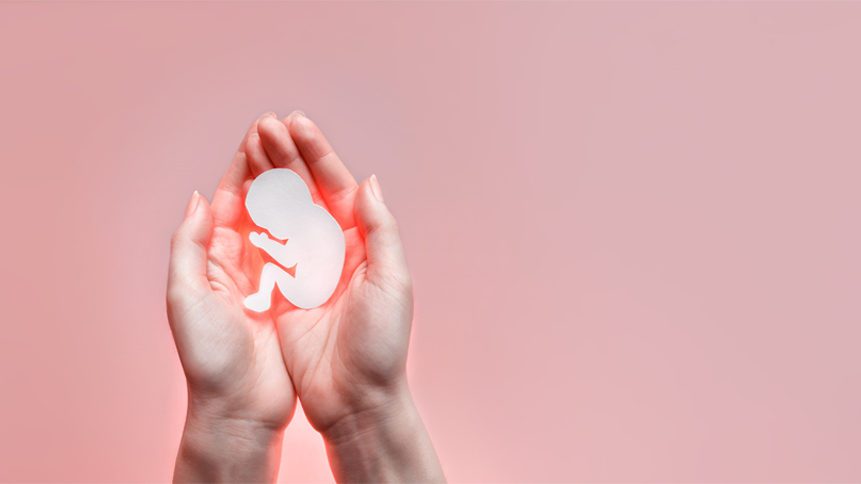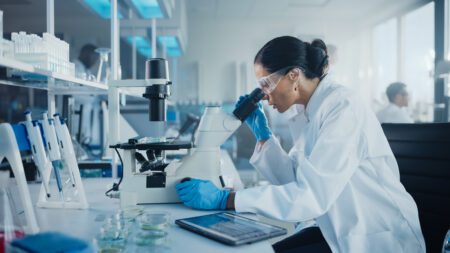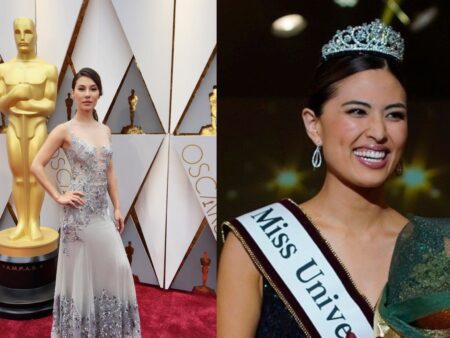
“I’m having a baby with or without you!” my husband exclaimed. We had reached an impasse and those words hit me like a stiff uppercut.
We were aware of our opposing opinions about children long before marriage, but I figured one of us would change our mind eventually. I always imagined the woman in a hetero partnership would make this decision and that the man just went along for the ride.
I have never imagined myself as a mother, but the thought of my husband having a child with another woman made my stomach churn, so when we were 35, he prevailed, and we started trying naturally. I told myself, “People do this every day—nearly half of the time they don’t even plan their children; I can do this.” Each month brought hope for two weeks, then crushing disappointment for two more weeks. This continued for a year.
All of my focus narrowed to tracking ovulation and obsessing over what was keeping me from achieving this pregnancy—as if it were a game I was determined to win. I ignored the fact that the mere idea of motherhood terrified me and I wondered how I’d ever handle career and motherhood together, but I continued to forge ahead under the assumption that I would really enjoy having children if I could just get pregnant.
Three back-to-back failed IUIs at Clinic #1 were the next step. As “failure” had never been part of my vocabulary, and as I am an avid lover of science and technology, the choice to move to IVF was a no-brainer.
My first retrieval produced two 5-day blastocysts that we did not PGS-test. Each was transferred separately. Both failed. I left it to the clinic nurse to tell me that my last transfer was unsuccessful. I had taken that day off from work, treated myself to breakfast and came home to watch “Goodfellas” as I nervously awaited that phone call. I remember collapsing into my husband’s arms and sobbing when I heard the bad news. Months of depression and my first visit to a therapist swiftly followed.
After a few months of cognitive behavioral therapy, I was ready to move on to the second clinic in town: it was newer, more expensive, and had a reputation for a more personalized, radical approach. During my initial consult, the doctor disparaged Clinic #1’s protocol as he questioned why my antral follicle count was never checked. Up on the table I went, laughing to myself about how many doctors, nurses, and miscellaneous medical professionals had seen my legs splayed out in a now-familiar position while they peeked, poked, and prodded my mysteriously non-compliant lady parts; my infertility was unexplained. For just once in my life, I wanted to be like other girls.
Up on the table I went, laughing to myself about how many doctors, nurses, and miscellaneous medical professionals had seen my legs splayed out in a now-familiar position while they peeked, poked, and prodded my mysteriously non-compliant lady parts; my infertility was unexplained. For just once in my life, I wanted to be like other girls.
My AFC was just OK and my anti-mullarian hormone had halved itself in just one year; it was less than 1. My new doctor emphasized that I needed to move quickly for the best egg quality possible, and I went on stimulation drugs at double the dose I’d had for my first retrieval six months earlier. At Clinic #1, I had stimmed for 7 days versus 13 days at Clinic #2.
At retrieval, my egg count doubled, and because we PGS-tested this time, we ended up with three genetically-sound 5-day blastocysts. We decided to take the summer off, enjoy ourselves, and transfer sometime in autumn.
However, during the summer of 2018, I had an awakening. IVF stress had taken a toll on my marriage, and I realized that many people live perfectly happy and fulfilling lives without children. My husband and I agreed to a trial separation. I made plans with old friends I hadn’t visited in years; I went to a concert by myself; I traveled; but most importantly, I reconnected to the idea that I’d never had the desire to have a child.
A certain bitterness surfaced in me. I’d felt very little emotional support from my husband during IVF. He rolled his eyes often during my constant chatter about various fertility strategies and my obsessiveness regarding our “Project Baby.” When he came to appointments, he wasted the rushed doctor’s time with questions that I could have easily answered, which I found endlessly frustrating. As the pile of used IVF needles built up in the biohazard bin, we found it harder and harder to relate to each other’s experience. “It’s not the medications making you angry,” he’d snap at me, “you’re just always in a horrible mood.” Ouch.
In retrospect, I realized that we had never talked about the pain we felt during our three-year “Project Baby” stint. I learned later, through therapy, that he was demonstrating signs of suffering too, but he had always been the strong, stoic type. He never told me that he felt horrible for pushing the baby idea on me—until we had already decided to divorce. Eventually, he apologized for his adamancy about starting a family and claimed that just the two of us together were family enough for him, but I always knew deep down that he still wanted children.
I marvel at the idea that I can give this gift to a childless couple who desire a baby as deeply as I once believed I did.
Personally, three PGS-normal embryos were all I needed to feel a sense of validation: I had proven that my eggs were good-enough quality to make multiple viable embryos. The urge to stop playing the IVF game increased; I had won this internal battle as I had slowly regained my confidence and finally knew what I truly wanted: a divorce. The idea of remaining childless and married to someone who deeply wanted children scared me; I imagined us in our 50s and 60s, with one of us miserable because the other had compromised.
And yet I have these frozen embryos.
Before I went into fertility treatment, I’d read “Cracked Open: Liberty, Fertility, and the Pursuit of High-Tech Babies” by Miriam Zoll. I related to her story as she had spent much time and money on various failed ART processes and one of her quotes stuck with me throughout my IVF cycles:
“Once inside the surreal world of reproductive medicine, there is no obvious off-ramp; you keep at it as long as your bank account, health insurance or sanity holds out.”
Now that I’m 39 and have also burned through most of my resources, I rationalize that my embryos are my last and only chance to get my DNA out into the world.
I marvel at the idea that I can give this gift to a childless couple who desire a baby as deeply as I once believed I did. I feel confident ending the IVF roller coaster in the driver’s seat choosing the embryo-adopting couple myself.
Most people don’t use a third party to get pregnant, so I rationalize that I don’t need one to choose an adopting couple. I want to maintain a semi-open relationship with my potential genetic child(ren). I want them to know they were so wanted that two different couples worked together to bring them into existence. This is the first time during IVF that I have felt 100% sure about anything.
My ex-husband fully supports my decision to become “Auntie Andrea” instead of “Mom” but chooses not to be involved in the donation process. I found a lot of comfort in Facebook groups during my infertility struggle so it made sense to find a Facebook page dedicated to embryo donation and adoption so that I could meet potential adopters and see what is driving their hopes and decisions. Before I even posted a blurb about myself on the page, the direct messages started rolling in: “If you are planning to donate, I hope you consider us…”, etc.
Wow! I went from feeling powerless during my own infertility journey to a complete sense of control over how my story will end. After initial feelings of nervousness about choosing the right couple, I now feel completely comfortable after speaking with potential adopters.
My dream is to click with the right couple and just know they are the perfect chosen family. Religious views, political stances, the importance of education, location, and a desire to travel are my main considerations when I look at embryo adopters. I am an only child and I also think it’s important to give a chance at parenthood to a couple who have not experienced it, just like me.
Today, I have no regrets or hesitation that donation seems like the best thing I can do to end my story on a positive note. I realize my goal was never to hold my own baby in my arms; it was always to conquer this seemingly basic problem that nearly all of humanity seems to be able to easily, and seemingly accidentally, accomplish. I refuse to leave my fate in the hands of the natural universe… and now I don’t have to.
Contributor
Andrea Kulikowski
Andrea Kulikowski holds a Master of Arts degree in Telecommunications, Information Studies, and Media from Michigan State University and works in state government. She enjoys writing for Quora, playing “soccer” with her Boston terrier, Nibbler, taking art classes, and making variations of different “boozy bundt cakes.” She hopes to find the perfect couple for her embryos.

Listen to stories, share your own, and get feedback from the community.


















